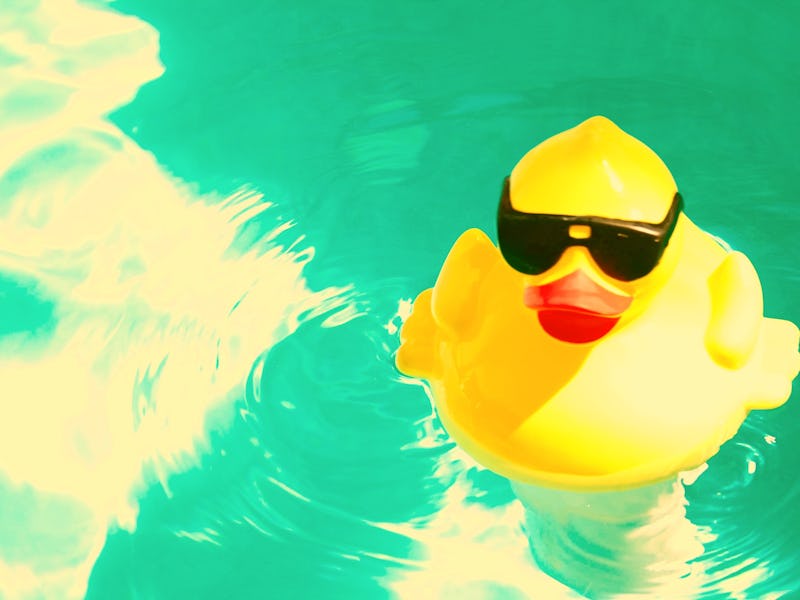If you’ve ever relieved yourself in a public swimming pool and laughed at all the innocent victims of your dirty little secret, consider this a warning: Scientists are watching you and they’re coming for you, you filthy animal.
Swimming in urine-contaminated water can cause infections in the eyes, skin, and bladder as well as upper respiratory problems. It’s a serious problem — one that led a team of University of Alberta scientists to figure out a way to detect urine in a pool. The reason researchers haven’t figured out how to solve this ubiquitous problem is that many of the compounds in urine are broken down by disinfectants, break down in the water, or evaporate — which makes them difficult to find. In a new study published in Environmental Science and Technology Letters, the scientists report that they finally found a compound that was truly representative of the urine it came from — one that’s a lot sweeter than they expected.
Solving the mystery came down to finding one component in our pee that no other study had considered before: artificial sweeteners. In an e-mail to Inverse, study co-author Lindsay Blackstock, a Ph.D. candidate, explained that our bodies don’t metabolize the artificial sweetener acesulfame potassium (ACE) and excrete it exclusively in urine; in addition, it’s stable among large temperature and pH ranges, so it isn’t going to break down in a pool. Armed with this new knowledge, she and her team got to measuring and concluded: “Overall our study provides additional evidence that people are indeed urinating in public pools and hot tubs.” Yikes.
In order to “apply the concept of using this artificial sweetener as an indicator of urine input,” they investigated how much of it really lurked in public pools. They gathered more than 250 samples from 31 pools and hot tubs in two Canadian cities and 90 samples from the tap water facilities used to fill them. While there were trace amounts of artificial sweeteners in the tap water itself, the amount was 570 times higher in the pool water, confirming that people had been secretly peeing in public.
Their calculations revealed the foul truth: In one 110,000-gallon pool, the scientists discovered seven gallons of pee. In another, which held 220,000 gallons (a third of an Olympic-size pool), there were 20 gallons of pee swirling around. Although these seem like small amounts, Blackstock points out that the breakdown of nitrogenous compounds in pee, which form chemicals known as disinfection byproducts, can cause eye and respiratory irritation even in small amounts. The artificial sweetener ACE, however, is “completely safe.”
While her team’s findings were pretty gnarly, Blackstock doesn’t suggest skipping the pool altogether. “First and foremost we want to emphasize that the health benefits from maintaining a healthy lifestyle through swimming far exceed the potential risks associated with urine in swimming pools and hot tubs,” she says. To stay safe, she says all swimmers need to be vigilant about showering before entering and exiting pools, but most importantly, to “be considerate of others and make sure to exit the pool to use the restroom when nature calls.”
